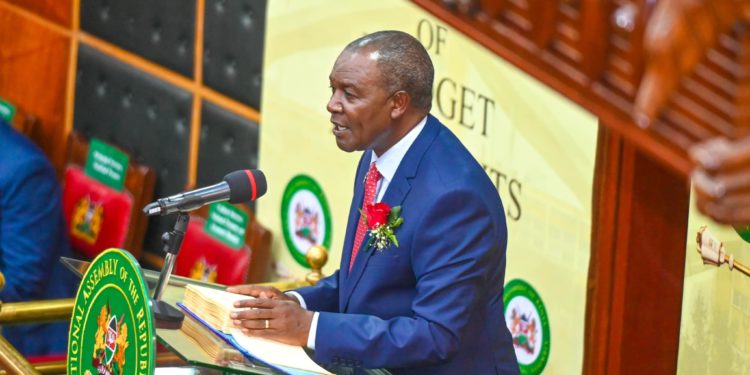Cabinet Secretary for the National Treasury and Economic Planning, Prof. Njuguna Ndung’u, has proposed a sweeping rationalization of the country’s Value Added Tax (VAT) regime. The overhaul seeks to address the substantial loss of revenue caused by tax expenditures, estimated at a staggering 2.9% of Kenya’s Gross Domestic Product (GDP) in 2022.
The proposed changes, outlined in the Finance Bill, 2024, target the VAT exemptions and zero-rating provisions, which have long been exploited for tax planning purposes, leading to revenue leakages. In an effort to create a more equitable and efficient tax system, Prof. Ndung’u announced three key criteria for the VAT restructuring.
First, all finished goods currently exempt from VAT will be subjected to the tax. “We propose that all finished goods currently exempt be subjected to VAT,” Prof. Ndung’u stated in his budget statement. This move aims to broaden the tax base and ensure that consumers contribute their fair share to the government’s revenue pool.
Second, goods and services currently zero-rated under the VAT Act will be reclassified as exempt from VAT. “Zero rated finished goods and services be exempt from VAT,” the Cabinet Secretary explained, indicating a shift in the treatment of these items.
Third, and perhaps most significantly, zero-rating will be restricted solely to goods and taxable services intended for export. Prof. Ndung’u emphasized, “Zero rating be restricted to goods and taxable services meant for export.” This measure is designed to promote Kenya’s export competitiveness while ensuring that domestic consumption contributes to the country’s tax base.
The proposed amendments to the First and Second Schedules of the VAT Act will lead to a significant expansion of the VAT tax base and create a more level playing field for businesses operating in the Kenyan market. “This rationalization is expected to expand the VAT tax base and create fairness in taxation,” Prof. Ndung’u asserted.
The CS acknowledged the challenges faced by Kenyans due to the rising cost of living but emphasized the necessity of these reforms. “We urgently need to address the challenges that negatively affect our revenue collection,” he stated, underscoring the government’s commitment to fiscal consolidation and sustainable economic growth.
The proposed VAT overhaul is part of a broader tax policy reform agenda outlined in the Medium Term Revenue Strategy, aimed at enhancing domestic resource mobilization and reducing Kenya’s reliance on external borrowing. If implemented, the changes could have far-reaching implications for businesses, consumers, and the overall economic landscape of the country.
















